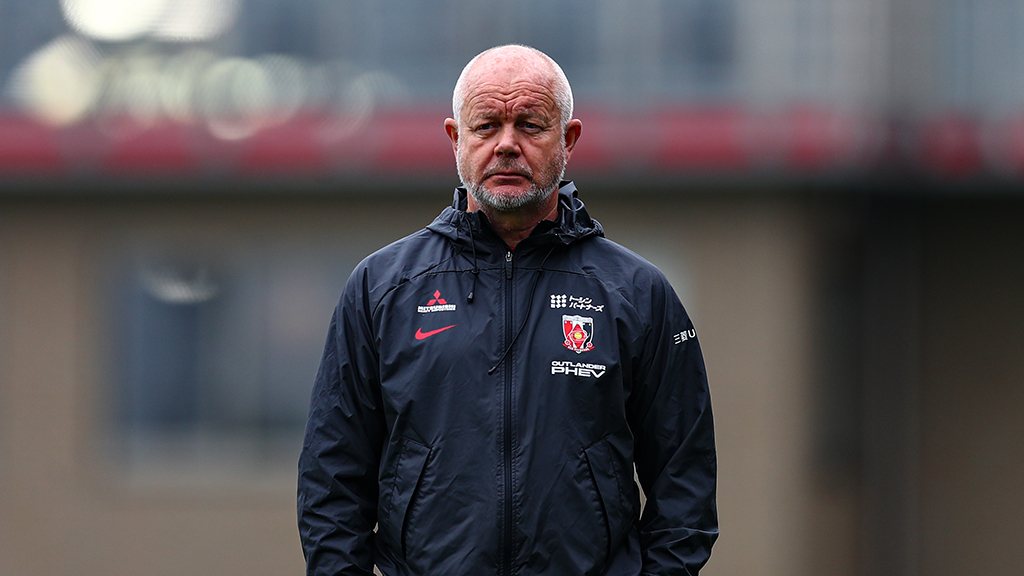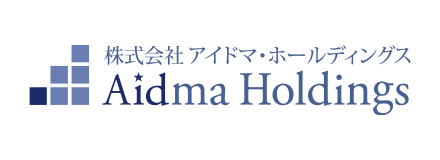NEWS
「全体の姿勢が非常に良い」ペア マティアス ヘグモ監督(定例会見 5/20)
20日、ペア マティアス ヘグモ監督の記者会見がオンラインで行われ、22日(水)にトランスコスモススタジアム長崎で行われるJリーグYBCルヴァンカップ 1stラウンド 3回戦 V・ファーレン長崎に向けて意気込みを語った。
(19日のジュビロ磐田戦は勝ち切れずに残念だったが、引いた相手を崩すためにたとえば勇気のあるくさびのパスなど、マティアス監督が選手たちに求めたいことは?)
「それが勇気の問題なのか、読みの問題なのか。タイミング良く攻撃を仕掛ける読みですね。試合の攻撃面ではかなり良くなってきていると思います。昨日の試合のように、我々がボールを握って相手が引いて守る試合は今後も増えていくと思います。たとえば縦のプレーも可能なときは狙っています。ですが、リスクのある、無理をするようなプレーではなく、はっきりとチャンスにつながるような形にしなければいけません。磐田戦の前に、選手たちにはその前の2試合で7得点決めていて、それ以外にもチャンスをつくっているのは攻撃面でうまく機能しているからだ、という話をしました。後半に入ってよりオープンな展開になり、相手がスペースを空け始めたところでチアゴ(サンタナ)や(前田)直輝のチャンスも生まれました。
選手たちには本日、チャレンジを与えました。一つは、1-0にしたとき、相手が疲れてきている状況でボールをしっかりキープすれば相手をより疲れさせる流れに持っていくことができる、という話をしました。簡単にそこで相手にボールを渡さないことが大事です。相手も点を取らなければいけないから前掛かりになって、そこで2点目、3点目を取るという流れに持っていくことができればと思っています。あとは個人の戦術的なスキルの話もしました。昨日の試合でもシュートをブロックされる場面が何度かありました。なぜブロックされているのか。その判断を選択するのが早過ぎるのではないか、という話もしました。状況を読んで選択しなければいけません。ブロックされているときはだいたい、2人か3人の選手が寄せてきています。そういうときは他の選手がフリーになっていたりします。ただ、そういう場面が増えているのは、枚数を掛けて相手ゴール前まで行けているということでもあります。今後発展させる重要なスキルだと思います。
(中2日で迎えるルヴァンカップの長崎戦も相手は引かざるを得ない状況になると思うが、どのように考えているか?)
「長崎は(J2)リーグで2位の得点力もある非常にいいチームだと思います。個別で見てもクオリティーの高い選手がそろっています。ルヴァンカップでは磐田も破っています。ただ、どういうゲームになるのかという予測をすれば、おっしゃられたとおり、我々がボールをキープする時間が長くなると思います。ただ、彼らは強力なカウンターも持っています。攻撃しているときのリスクマネジメントが重要になってきます」
(長崎戦で選手を入れ替える考えはあるのか?)
「まずグループ全体の姿勢が非常に良いと思います。メンバー外の選手たちも非常に高い質の練習を試合当日に行ったりしています。池田(伸康)コーチと石栗(建)フィジカルコーチが非常にいいトレーニングをしています。そして本日はスタメン以外がトレーニングを行いましたが、非常に質の高いトレーニングができました。ボールを奪い返す、プレスを掛ける、相手に寄せるといったところの姿勢が非常に良くなってきていると思います。全体でイメージを共有しながらプレーできるようになってきていると思います。そうなると自信もついてきます。(安居)海渡が6番としてプレーしたり、それまでプレーしていなかった選手がピッチに立ったときもいいプレーができています。ブック(エカニット パンヤ)も何度かピッチに立っていますが、彼もいいパフォーマンスを見せてくれていると思います。(酒井)宏樹も戻ってきていますが、シャープなプレーが見られています。いくつかのポジションでローテーションを行うチャンスはあると思います。それも重要ですが、継続性を持たせることも同時に重要だと思います」
(選手を入れ替えるかどうかを考えるときに、選手がどれくらい疲れているかを見極めることが非常に大事だと思う。血液検査の結果を見るという監督もいれば、そういうことよりも選手の意欲や感覚を大事にするという監督もいる。マティアス監督はどのように判断しているのか?)
「さまざまな側面があると思います。たとえば怪我のリスクも一つです。それまでの負荷の蓄積などもありますが、我々は週に2試合こなせる選手を作っていこうとしています。そしてメンタル的にもフィジカル的にもその準備をしなければいけません。このクラブはたくさんの試合をプレーしようとするクラブです。基本的な考え方はそれですが、各試合の前に選手それぞれを個別に観察します。そこはかなり個別に見ています。たとえば過去に連戦の経験があまりない選手だったら休ませるといったことも考えたりします。ただ、実際に連戦に慣れさせるためには、試合でプレーさせることが一番のトレーニングだと思います」
(試合の先発メンバーにいてもおかしくない選手が7、8人負傷離脱していると思うが、この後にJ1リーグではFC町田ゼルビアやヴィッセル神戸といった上位と対戦する。長崎戦で一度ピッチに立つことができないとそういう際どいゲームに信頼して送り出すのは難しいのではないかと思うが、そういう選手たちの状況はどうなのか?)
「水曜日にご覧になれると思いますが、怪我人もどんどんトレーニングに戻ってきていますし、たとえばオラ(ソルバッケン)もクオリティーの高いトレーニングができています。(岩尾)憲とサミュエル(グスタフソン)も練習に合流しています。水曜日の試合に関しては、メディカルスタッフやフィジカルコーチたちとどうするかを話し合っています。ただ、その後のことは考え過ぎず、1試合ずつ準備をしていきたいと思います。まずは水曜日に向けてベストな準備をすることです」
(磐田戦後に渡邊凌磨選手が「勝った試合で『何で勝ったか』を言えるチームは強い」、「今は何で勝てたかを全員が明確に言えますし、今の良いところ、悪いところを全員が明確に持てている」と言っていたことが印象的だったが、それは日々のミーティングなどの積み重ねなのか?それとも選手たちがマティアス監督のサッカーを言語化できるようになったのか?)
「日々ミーティングを行っていますが、今日のミーティングでは選手、スタッフに、我々が結果を残しているのは自分たちがやっていることに自信を持ってプレーしているから、結果として勝利がついてくる、という話をしました。お互いに対する要求はどんどん高めていってもいいと思います。全員が方向性が見えれば、自信を持って安全な気持ちでそういうことができると思います。メディアのみなさんとも当初から、ハングリーさの文化をここに作りたい、高いモチベーションでプレーしたいということを話してきましたが、それができつつありますので、いい意味で要求し合えるような環境になってきたと思います。はっきりとしたアイデンティティーを持つことは常に重要だと思っています。あとはそのアイデンティティーに対して、それぞれがオーナーシップ、当事者意識を持って行動することが重要です。そしてそのアイデンティティーは選手とコーチングスタッフのみで共有して実行するものではなく、たとえば栄養士の石川(三知)さんやグラウンドキーパーを含め、このチームはどういったアイデンティティーを持っているのか、どういった要求があるのかということを意識して、大原(サッカー場)全体がそうしなければいけません」
(シーズン開幕当初と比べてポジショニングで自由度が高まっていると思うが、シーズンの最初は型をはっきりと選手たちに提示し、それを守らせ、徐々に自由度を高めていくようなチーム作りをもともと考えていたのか?それとも今の選手たちの姿を見て自由度を与えた方がうまくいくと考えてマティアス監督が変化していったのか?)
「自由度とクリエイティビティーという言葉がありますが、それが同義なのかどうか。まずはしっかりとした構造を作ることが重要だと思います。その構造がしっかりとすれば、その上で選手たちの創造力、クリエイティビティーが生まれてきますし、関係性も出るようになります。構造ができる前に自由を与え過ぎるとカオスになってしまいます。そしておっしゃっていることはそのとおりだと思います。構造のところに日々のトレーニングで取り組んでいますが、そのなかで選手の関係性がどんどん発達していっています。あとは先ほども話しをしたオーナーシップのところです。選手たちが当事者意識を持って、議論に参加するようになるとクリエイティブなところがどんどん出てくるようになります。監督に言われていることだけをやっていれば、監督の能力がチームの限界になってしまいます。そして攻撃的なサッカーの構造をチームに与えることはある程度の時間がかかると思いますが、いい方向に向かっていると思います。どんどん複雑な方向に発展させていかなければいけません。我々のチームが複雑になればなるほど、相手にとって戦いにくくなると思います」
(構造から作って創造性を発展させるということは、マティアス監督のどのような経験から生まれたのか?戦術論としてヨーロッパでベースとして共有されていることなのか?)
「私は最初から、いろいろな監督のアイデンティティーからいろいろなものを盗ませてもらっています。ノルウェーのサッカーは構造を大事にします。90年代はブラジルに次いでFIFAランキングで2位になったこともあります。ノルウェーはしっかりとした構造で守ってカウンターを仕掛ける、そしてリスクをあまりかけないというやり方をしていました。私の最後の監督になったのはトミー スヴェンソンさんで、アメリカで行われた1994 FIFAワールドカップで3位になった方です。ダイレクトでプレーしていたチームをポゼッションするチームに変え、リーグ2位になりました。そして私は指導者として常に、ピッチ上だけではなく組織として、たとえばスタッフの構造も大事にしてきました。その構造をしっかり作っておくと、その上で創造力が発展していくと信じています。構造と創造のバランスですが、結局クリエイティブになるためには構造が必要だという研究もたくさんあります。さまざまな分野のアーティストを世界中で見ますと、活躍している人たちは構造を大事にし、ハードワークもしている方が多いです」
(最初の質問で答えが出ているような気もするが、磐田戦はパスを出せたシーンでシュートを打ってしまうことが何度かあったと思う。全くシュートを打たない選手になっても困るが、エゴと人を使うプレーのバランスは選手にどのように求めてどのように育てていこうとしているのか?)
「冒頭でも少し話をしましたが、ゴール前の状況ではっきりとシュートチャンスであれば打ってもいいと思います。でも早まった選択をしてしまってブロックされるのであれば、周りを使った方がいいと思います。たとえば凌磨のシュートの場面では、そこで打たずに左から上がってきている(大畑)歩夢を使っていれば、より大きなチャンスになっていたかもしれません。ゴール前に入れているから訪れるような場面ですが、そこでどの選択をすればゴールを割るチャンスが大きくなるのかという判断です」
(磐田戦は苦労したが、その前に3連勝した試合を見ると、選手たちの関係性が良くなったところでプレーの選択肢が増えていると思う。そうなると逆にどれを選ぶか難しくなると思うが、優先順位をマティアス監督はどのように整理して選手たちに伝えているのか?)
「常にオプションを2つ、3つ作りながらプレーしていれば、相手にとって非常に戦いにくい状況になると思います。これも関係性のところですので、たとえばサイドでボールを持ったらサイドバックが上がってきてくれているということが分かっていればプレーしやすいと思います。直輝のチャンスのところもそうでした。その前のところでシュートではなく直輝へのパスを選択することによってがら空きだったゴール前での直輝の状況があって、あとはそれを直輝が決めるべきだったという状況でした。非常に興味深いところだと思います。我々のアイデンティティーとして、ピッチ上のあらゆるところで2対1を作りたいと思っています。それはペナルティーエリア内も例外ではありません。ボールホルダーの前やサイドにランニングがあればそれを作れます。(伊藤)敦樹がホームで取ったゴールのうちの1つは、敦樹の前をトモ(大久保智明)が横切るようなランニングをして、センターバックを1人連れて行くことによってシュートコースが空きました。関係性が深まれば、周りを探すのではなく、ここでランニングしてくれていると分かった状態でプレーすることができます」
【浦和レッズオフィシャルメディア(URD:OM)】
(19日のジュビロ磐田戦は勝ち切れずに残念だったが、引いた相手を崩すためにたとえば勇気のあるくさびのパスなど、マティアス監督が選手たちに求めたいことは?)
「それが勇気の問題なのか、読みの問題なのか。タイミング良く攻撃を仕掛ける読みですね。試合の攻撃面ではかなり良くなってきていると思います。昨日の試合のように、我々がボールを握って相手が引いて守る試合は今後も増えていくと思います。たとえば縦のプレーも可能なときは狙っています。ですが、リスクのある、無理をするようなプレーではなく、はっきりとチャンスにつながるような形にしなければいけません。磐田戦の前に、選手たちにはその前の2試合で7得点決めていて、それ以外にもチャンスをつくっているのは攻撃面でうまく機能しているからだ、という話をしました。後半に入ってよりオープンな展開になり、相手がスペースを空け始めたところでチアゴ(サンタナ)や(前田)直輝のチャンスも生まれました。
選手たちには本日、チャレンジを与えました。一つは、1-0にしたとき、相手が疲れてきている状況でボールをしっかりキープすれば相手をより疲れさせる流れに持っていくことができる、という話をしました。簡単にそこで相手にボールを渡さないことが大事です。相手も点を取らなければいけないから前掛かりになって、そこで2点目、3点目を取るという流れに持っていくことができればと思っています。あとは個人の戦術的なスキルの話もしました。昨日の試合でもシュートをブロックされる場面が何度かありました。なぜブロックされているのか。その判断を選択するのが早過ぎるのではないか、という話もしました。状況を読んで選択しなければいけません。ブロックされているときはだいたい、2人か3人の選手が寄せてきています。そういうときは他の選手がフリーになっていたりします。ただ、そういう場面が増えているのは、枚数を掛けて相手ゴール前まで行けているということでもあります。今後発展させる重要なスキルだと思います。
(中2日で迎えるルヴァンカップの長崎戦も相手は引かざるを得ない状況になると思うが、どのように考えているか?)
「長崎は(J2)リーグで2位の得点力もある非常にいいチームだと思います。個別で見てもクオリティーの高い選手がそろっています。ルヴァンカップでは磐田も破っています。ただ、どういうゲームになるのかという予測をすれば、おっしゃられたとおり、我々がボールをキープする時間が長くなると思います。ただ、彼らは強力なカウンターも持っています。攻撃しているときのリスクマネジメントが重要になってきます」
(長崎戦で選手を入れ替える考えはあるのか?)
「まずグループ全体の姿勢が非常に良いと思います。メンバー外の選手たちも非常に高い質の練習を試合当日に行ったりしています。池田(伸康)コーチと石栗(建)フィジカルコーチが非常にいいトレーニングをしています。そして本日はスタメン以外がトレーニングを行いましたが、非常に質の高いトレーニングができました。ボールを奪い返す、プレスを掛ける、相手に寄せるといったところの姿勢が非常に良くなってきていると思います。全体でイメージを共有しながらプレーできるようになってきていると思います。そうなると自信もついてきます。(安居)海渡が6番としてプレーしたり、それまでプレーしていなかった選手がピッチに立ったときもいいプレーができています。ブック(エカニット パンヤ)も何度かピッチに立っていますが、彼もいいパフォーマンスを見せてくれていると思います。(酒井)宏樹も戻ってきていますが、シャープなプレーが見られています。いくつかのポジションでローテーションを行うチャンスはあると思います。それも重要ですが、継続性を持たせることも同時に重要だと思います」
(選手を入れ替えるかどうかを考えるときに、選手がどれくらい疲れているかを見極めることが非常に大事だと思う。血液検査の結果を見るという監督もいれば、そういうことよりも選手の意欲や感覚を大事にするという監督もいる。マティアス監督はどのように判断しているのか?)
「さまざまな側面があると思います。たとえば怪我のリスクも一つです。それまでの負荷の蓄積などもありますが、我々は週に2試合こなせる選手を作っていこうとしています。そしてメンタル的にもフィジカル的にもその準備をしなければいけません。このクラブはたくさんの試合をプレーしようとするクラブです。基本的な考え方はそれですが、各試合の前に選手それぞれを個別に観察します。そこはかなり個別に見ています。たとえば過去に連戦の経験があまりない選手だったら休ませるといったことも考えたりします。ただ、実際に連戦に慣れさせるためには、試合でプレーさせることが一番のトレーニングだと思います」
(試合の先発メンバーにいてもおかしくない選手が7、8人負傷離脱していると思うが、この後にJ1リーグではFC町田ゼルビアやヴィッセル神戸といった上位と対戦する。長崎戦で一度ピッチに立つことができないとそういう際どいゲームに信頼して送り出すのは難しいのではないかと思うが、そういう選手たちの状況はどうなのか?)
「水曜日にご覧になれると思いますが、怪我人もどんどんトレーニングに戻ってきていますし、たとえばオラ(ソルバッケン)もクオリティーの高いトレーニングができています。(岩尾)憲とサミュエル(グスタフソン)も練習に合流しています。水曜日の試合に関しては、メディカルスタッフやフィジカルコーチたちとどうするかを話し合っています。ただ、その後のことは考え過ぎず、1試合ずつ準備をしていきたいと思います。まずは水曜日に向けてベストな準備をすることです」
(磐田戦後に渡邊凌磨選手が「勝った試合で『何で勝ったか』を言えるチームは強い」、「今は何で勝てたかを全員が明確に言えますし、今の良いところ、悪いところを全員が明確に持てている」と言っていたことが印象的だったが、それは日々のミーティングなどの積み重ねなのか?それとも選手たちがマティアス監督のサッカーを言語化できるようになったのか?)
「日々ミーティングを行っていますが、今日のミーティングでは選手、スタッフに、我々が結果を残しているのは自分たちがやっていることに自信を持ってプレーしているから、結果として勝利がついてくる、という話をしました。お互いに対する要求はどんどん高めていってもいいと思います。全員が方向性が見えれば、自信を持って安全な気持ちでそういうことができると思います。メディアのみなさんとも当初から、ハングリーさの文化をここに作りたい、高いモチベーションでプレーしたいということを話してきましたが、それができつつありますので、いい意味で要求し合えるような環境になってきたと思います。はっきりとしたアイデンティティーを持つことは常に重要だと思っています。あとはそのアイデンティティーに対して、それぞれがオーナーシップ、当事者意識を持って行動することが重要です。そしてそのアイデンティティーは選手とコーチングスタッフのみで共有して実行するものではなく、たとえば栄養士の石川(三知)さんやグラウンドキーパーを含め、このチームはどういったアイデンティティーを持っているのか、どういった要求があるのかということを意識して、大原(サッカー場)全体がそうしなければいけません」
(シーズン開幕当初と比べてポジショニングで自由度が高まっていると思うが、シーズンの最初は型をはっきりと選手たちに提示し、それを守らせ、徐々に自由度を高めていくようなチーム作りをもともと考えていたのか?それとも今の選手たちの姿を見て自由度を与えた方がうまくいくと考えてマティアス監督が変化していったのか?)
「自由度とクリエイティビティーという言葉がありますが、それが同義なのかどうか。まずはしっかりとした構造を作ることが重要だと思います。その構造がしっかりとすれば、その上で選手たちの創造力、クリエイティビティーが生まれてきますし、関係性も出るようになります。構造ができる前に自由を与え過ぎるとカオスになってしまいます。そしておっしゃっていることはそのとおりだと思います。構造のところに日々のトレーニングで取り組んでいますが、そのなかで選手の関係性がどんどん発達していっています。あとは先ほども話しをしたオーナーシップのところです。選手たちが当事者意識を持って、議論に参加するようになるとクリエイティブなところがどんどん出てくるようになります。監督に言われていることだけをやっていれば、監督の能力がチームの限界になってしまいます。そして攻撃的なサッカーの構造をチームに与えることはある程度の時間がかかると思いますが、いい方向に向かっていると思います。どんどん複雑な方向に発展させていかなければいけません。我々のチームが複雑になればなるほど、相手にとって戦いにくくなると思います」
(構造から作って創造性を発展させるということは、マティアス監督のどのような経験から生まれたのか?戦術論としてヨーロッパでベースとして共有されていることなのか?)
「私は最初から、いろいろな監督のアイデンティティーからいろいろなものを盗ませてもらっています。ノルウェーのサッカーは構造を大事にします。90年代はブラジルに次いでFIFAランキングで2位になったこともあります。ノルウェーはしっかりとした構造で守ってカウンターを仕掛ける、そしてリスクをあまりかけないというやり方をしていました。私の最後の監督になったのはトミー スヴェンソンさんで、アメリカで行われた1994 FIFAワールドカップで3位になった方です。ダイレクトでプレーしていたチームをポゼッションするチームに変え、リーグ2位になりました。そして私は指導者として常に、ピッチ上だけではなく組織として、たとえばスタッフの構造も大事にしてきました。その構造をしっかり作っておくと、その上で創造力が発展していくと信じています。構造と創造のバランスですが、結局クリエイティブになるためには構造が必要だという研究もたくさんあります。さまざまな分野のアーティストを世界中で見ますと、活躍している人たちは構造を大事にし、ハードワークもしている方が多いです」
(最初の質問で答えが出ているような気もするが、磐田戦はパスを出せたシーンでシュートを打ってしまうことが何度かあったと思う。全くシュートを打たない選手になっても困るが、エゴと人を使うプレーのバランスは選手にどのように求めてどのように育てていこうとしているのか?)
「冒頭でも少し話をしましたが、ゴール前の状況ではっきりとシュートチャンスであれば打ってもいいと思います。でも早まった選択をしてしまってブロックされるのであれば、周りを使った方がいいと思います。たとえば凌磨のシュートの場面では、そこで打たずに左から上がってきている(大畑)歩夢を使っていれば、より大きなチャンスになっていたかもしれません。ゴール前に入れているから訪れるような場面ですが、そこでどの選択をすればゴールを割るチャンスが大きくなるのかという判断です」
(磐田戦は苦労したが、その前に3連勝した試合を見ると、選手たちの関係性が良くなったところでプレーの選択肢が増えていると思う。そうなると逆にどれを選ぶか難しくなると思うが、優先順位をマティアス監督はどのように整理して選手たちに伝えているのか?)
「常にオプションを2つ、3つ作りながらプレーしていれば、相手にとって非常に戦いにくい状況になると思います。これも関係性のところですので、たとえばサイドでボールを持ったらサイドバックが上がってきてくれているということが分かっていればプレーしやすいと思います。直輝のチャンスのところもそうでした。その前のところでシュートではなく直輝へのパスを選択することによってがら空きだったゴール前での直輝の状況があって、あとはそれを直輝が決めるべきだったという状況でした。非常に興味深いところだと思います。我々のアイデンティティーとして、ピッチ上のあらゆるところで2対1を作りたいと思っています。それはペナルティーエリア内も例外ではありません。ボールホルダーの前やサイドにランニングがあればそれを作れます。(伊藤)敦樹がホームで取ったゴールのうちの1つは、敦樹の前をトモ(大久保智明)が横切るようなランニングをして、センターバックを1人連れて行くことによってシュートコースが空きました。関係性が深まれば、周りを探すのではなく、ここでランニングしてくれていると分かった状態でプレーすることができます」
【浦和レッズオフィシャルメディア(URD:OM)】























